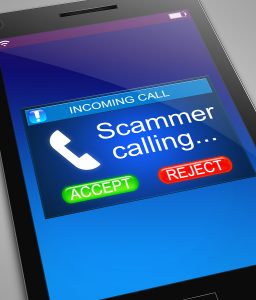Last year more than $1 Trillion was stolen from businesses and consumers in online and telephone scams.
One of thieves’ favorite methods to fleece business owners is the “tax scam.” By harvesting information from the Internet, the thieves use your business and personal information to convince you that they are an official IRS agent when they call.
The scam is: they tell you that you missed or underpaid a required tax payment and the amount will be sent for collection (or worse yet, that you will be arrested) if you don’t pay immediately. If you do pay, kiss your money goodbye.
The Internal Revenue Service does not generally conduct business by telephone, they use the mail. If you receive a tax scam call here are the actions you should take immediately:
- Avoid providing additional private information to the caller, such as your tax or Social Security ID, and end the call quickly.
- Contact your practice’s CPA and provide details of the call. Your CPA can contact the IRS on your behalf if necessary.
- Check with your identity protection service and see if there has been any recent fraudulent credit attempts or if your practice or personal information has been sold.
You can reduce your risks of being targeted by a scammer by controlling the sensitive information that is online about you and your practice.
An excellent service in tracking “Black Market Website” sales of private information is offered by LifeLock. I get an email alert from LifeLock every time my information is reported being listed for sale or sold online on one of these sites. In most cases LifeLock steps me through the process to permanently remove my information from the offending site.
Today, for example, I received a message that a prominent business social media website had sold my personal profile. My response will be to edit down my profile on that site to remove sensitive information that could be used to target me for a scam.

